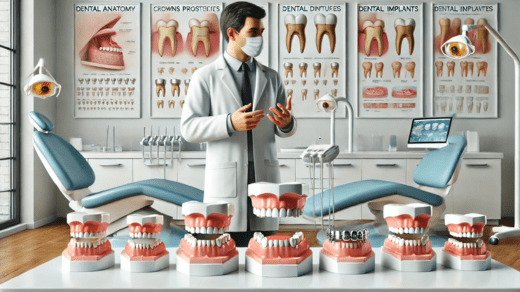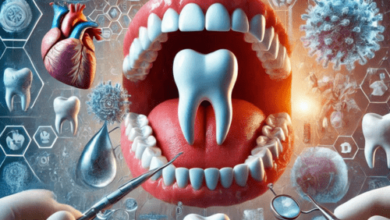Understanding Dental Prosthetics: A General Dentist’s Guide

Understanding dental prosthetics can feel overwhelming. Many people may need bridges, crowns, or dentures at some point. These tools help restore function and appearance after tooth loss or damage. Routine care is more effective after treatment. Think of a knight’s armor. It protects and strengthens, allowing renewed confidence and ability. For those seeking a holistic root canal New York experience, dental prosthetics provide additional options for comprehensive care. Let’s explore the basics of these essential devices.
Types of Dental Prosthetics
There are three main types of dental prosthetics: crowns, bridges, and dentures. Each serves a unique purpose.
- Crowns: These cap or cover damaged teeth. They restore the tooth’s shape, size, and strength.
- Bridges: These fill the gap created by one or more missing teeth. Anchored by crowns on each side, they provide stability.
- Dentures: These replace missing teeth and surrounding tissue. Dentures can be full or partial, depending on the number of teeth missing.
Benefits of Dental Prosthetics
Dental prosthetics improve oral health and overall quality of life. Here are three key benefits:
- Improved Chewing and Speaking: Prosthetics restore the ability to chew and speak clearly, making everyday activities easier.
- Enhanced Appearance: They provide a natural look, boosting self-confidence and encouraging social interaction.
- Preventing Further Oral Issues: Prosthetics protect against shifting of remaining teeth and potential jaw problems.
Comparison Table: Crowns, Bridges, and Dentures
| Type | Use | Longevity |
| Crowns | Cover damaged teeth | 5-15 years |
| Bridges | Fill gaps between teeth | 5-10 years |
| Dentures | Replace missing teeth | 5-8 years |
Maintenance and Care
Proper care ensures the longevity of dental prosthetics. Regular dental check-ups are vital. Here’s a simple care guide:
- Crowns and Bridges: Brush and floss daily to prevent plaque buildup. Use a fluoride mouthwash for extra protection.
- Dentures: Remove and clean daily. Soak in a denture cleaner overnight. Avoid hot water which can warp them.
For a detailed guide on oral hygiene, visit the CDC’s Oral Health Page.
When to Consult a Dentist
Consult a dentist if experiencing discomfort, looseness, or difficulty with prosthetics. Early intervention prevents further issues. Discuss concerns and explore options that match individual needs and lifestyles. More information on dental visits is available at the NIH’s Dental Visit Guide.
Conclusion
Understanding dental prosthetics is a step toward better oral health. Crowns, bridges, and dentures offer solutions for tooth loss and damage. Regular care and maintenance extend their life and effectiveness. They help regain confidence and improve daily life. Knowledge empowers, making dental decisions easier and more informed.




